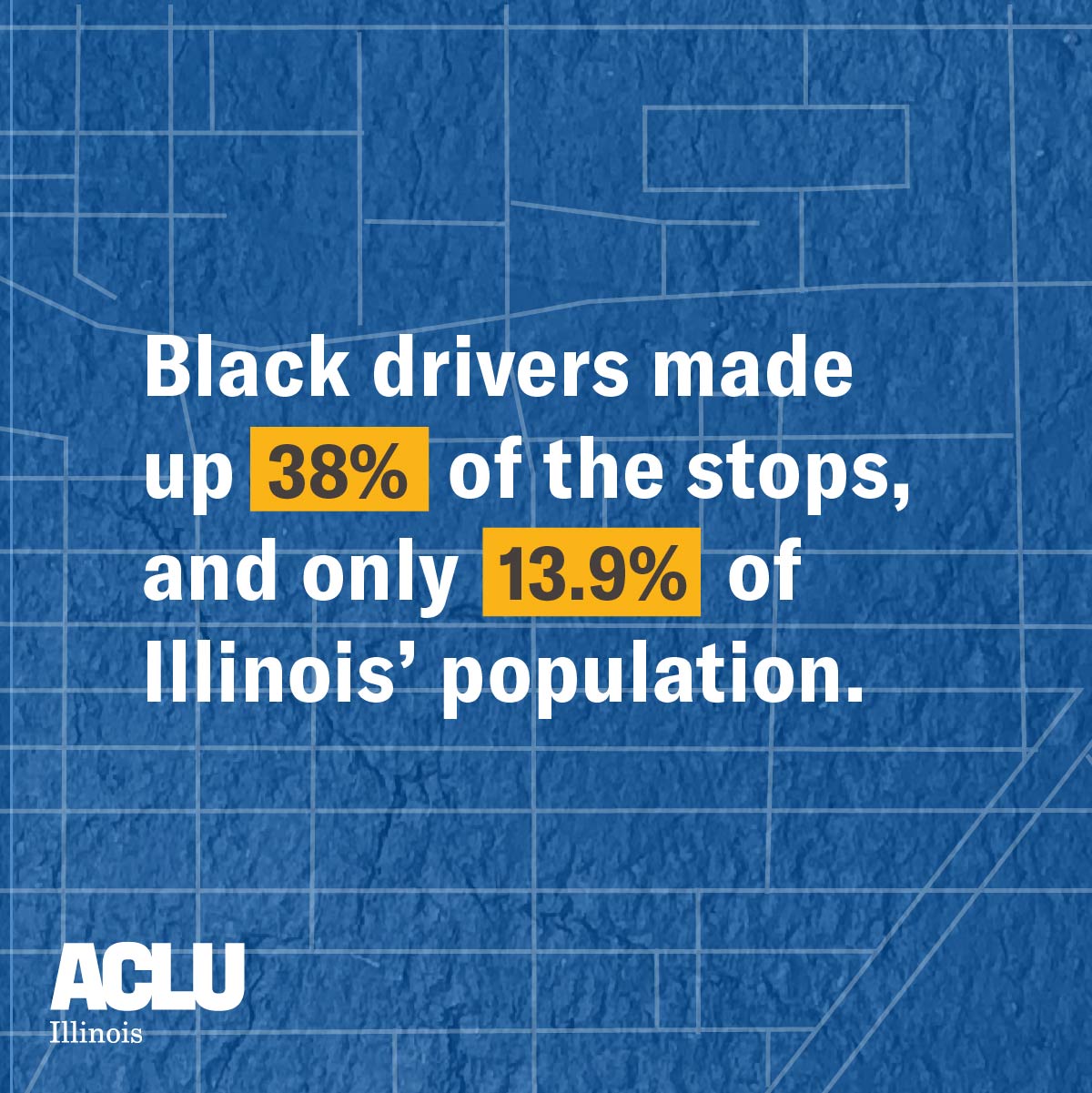By: Rachel Murphy, Staff Attorney
Driving while Black continues to be a problem in Illinois. We know this because every law enforcement agency in the state is required by law to document and report data on traffic stops to the Illinois Department of Transportation (“IDOT”), which then analyzes and summarizes the data in an annual report. And what does it show? Across the state, Black drivers are stopped at rates far higher than their estimated local driving populations. The question is: What are law enforcement agencies doing to identify and remedy any racial disparities in their jurisdictions?
For many people, a traffic stop is much more than a mere interruption to a person’s day that can lead to hefty fines and fees. Especially for drivers of color, a traffic stop is a frightening, demeaning interaction with an armed officer and a significant power imbalance that far too often results in tragic outcomes. The fact that Black drivers are subjected to these stops at higher rates than white drivers is unacceptable. Experts tell us that even when a person safely drives off without receiving a citation, they can be left feeling targeted, harassed, and racially profiled, making them less likely to trust law enforcement or seek out their assistance in the future.
In 2003, State Senator Barack Obama championed a racial profiling law that required all Illinois law enforcement agencies to report their traffic stop data, including the race of the person stopped and the outcome of the stop. Over the years, as the data shed light on the disproportionate targeting of people of color for traffic stops, state lawmakers expanded the Traffic Stop Statistical Study Act (“the Study Act”) to include data on police searches of drivers based on “consent,” dog sniff searches, and pedestrian stops. The Study Act was originally set to expire in 2007 and was extended every few years until finally becoming permanent in 2019.
Thanks to the Study Act, we now have an incredible amount of information at our hands, and law enforcement agencies must commit to studying it. Some jurisdictions have done exactly that. For example, in Urbana, the City Council established a task force in 2014, which studied the data and made recommendations for police reforms. Yet racial disparities persisted. The Urbana Police Department examined their data again and found that disparities were greater when officers made stops during routine patrol, rather than in locations focusing specifically on traffic enforcement. In late 2020, the Urbana Police Department instituted a pilot program to focus traffic enforcement in areas with higher volumes of accidents, while still allowing officers to make stops to address dangerous driving behavior or to investigate crimes.
In Chicago, the data is alarming. From 2015 to 2019, Chicago Police increased the number of traffic stops they made from about 86,000 to nearly 600,000, with Black drivers and verbal warnings accounting for the majority of the increase. In 2020, even though the total number of stops decreased (likely in relation to stay-at-home orders), Black drivers in Chicago were still stopped seven times more often than white drivers. City officials have never explained why police are targeting Black people for traffic stops in such a disproportionate way or what—if anything—they plan to do about this problem. (Notably, guns were recovered in 0.11% or less of Chicago traffic stops each year from 2015 to 2020.).
One solution that local governments should consider is to ensure that officers do not stop drivers for minor violations or as a mere pretext for investigating something else. The Minneapolis Police Department recently announced that it would no longer stop people for having items dangling from a rear view mirror or not having a working license plate light. Similarly, the city of Berkeley, California voted to limit police involvement in low-level traffic stops, having trained civilians handle most traffic enforcement.
After so many high-profile police killings during interactions initiated by minor offenses, it is time for creative and profound change. The status quo is not working. Law enforcement agencies in Illinois must use the broad data collection on traffic stops to make sure they are changing practices that lead to disproportionately targeting Black people, and they must work with communities to build trust and repair relationships.
